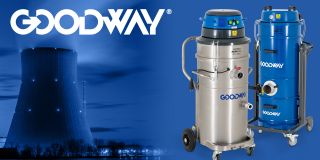No, The Cancer Death Was Probably Not From Fukushima
What actually happened is the government decided last week that the worker's family should be paid compensation. Just like happens a lot in the United States. We just don't want to fight it - it looks bad. Which is fine. It's a wonderful thing to give grieving people compensation.
The man, who was in his 50s, died from lung cancer that was diagnosed in 2016. There is no evidence it happened because of Fukushima. Instead, it appears the compensation was awarded just because he was a career nuclear worker. Who worked at Fukushima a couple of times. Who got cancer.
First, lung cancer is not the type of cancer caused by nuclear accidents, and certainly not this soon after exposure or because of such doses. It took decades for lung cancer to appear in the atomic bomb survivors, and those were at much higher doses than this worker received. By all accounts, this worker was diligent in his protocols and in wearing the appropriate protective gear.
The government previously said that radiation was linked to four workers developing leukemia and thyroid cancer from high doses, which are more reasonable cancers to expect from this disaster. But none have died.
Second, the radiation workers in Japan, including Fukushima, as with all radworkers around the world, do not have any more cancers than the general population. The people around Fukushima do not have any more cancers than the general population and never will. They never got enough of a dose.
Like all human populations, cancer occurs in about 20%-30% of all people, depending on where you live. In Japan, it's 20%. So Fukushima nuclear workers, Tokyo sushi chefs, and automotive workers in Toyota City, all have the same cancer rates, which means that 20% of these people will get cancer. And lung cancer is the fourth most common type in Japan, behind breast, colorectal and stomach, so it is not noteworthy that this man died of lung cancer in his 50s.
But radiation does not increase that rate in Japan because no one, not even radworkers, get enough exposure to change that number.
Not even from Fukushima.
The Tohoku earthquake and tsunami that struck Japan in March of 2011 was a disaster of epic proportions - about 20,000 people died, over 300,000 were left homeless, a blow to the country's economic and infrastructure unlike anything in the last 40 years.
Within two days of the earthquake, 150,000 people were ordered to evacuate from within 20 kilometers of the nuclear plant. This was very effective in preventing any and all radiation-induced health-effects to the public. But most of the evacuees should have returned home after I-131 decayed away completely in the 3 months following the event. Instead, they have been living as refugees for 7 years. And that has very bad health effects, much worse than anything Fukushima could do.
The United Nations Scientific Committee on the Effects of Atomic Radiation declared, 'It is unlikely to be able to attribute any health effects in the future among the general public and the vast majority of workers from exposure to radiation following the leaks and explosions at the earthquake-damaged power plant in March of 2011.'
However, over 1,000 deaths were caused solely by the forced evacuation, not from radiation. Three Tepco executives were tried for the negligence of ripping people off of life-support to save them from a one-in-a-billion chance of getting a significant radiation dose. But they should never have been evacuated in the first place.
The only residual health effects from Fukushima continue to be from stress, depression and fear.
Fukushima is slowly beginning to return to normal. Radiation levels are back down. The J-Village national soccer training center in Fukushima Prefecture is reopening in preparation for the 2020 Olympics. Namie Village resumed its annual samurai parade. Beaches are re-opening.
But fear is still the greatest danger around Fukushima.
This article originally appeared on Forbes.
Feel free to leave a constructive remark or question for the author in the comment section below.

